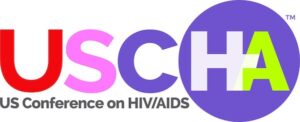NMAC today announced that the 2021 US Conference on HIV/AIDS will move from an in-person conference to a virtual meeting due to the continued spread of the Delta variant of the Covid virus. The virtual conference will take place Dec. 2-3.
 “This is not the announcement we wanted to make,” said Paul Kawata, Executive Director of NMAC. “We were very hopeful that we could hold an in-person USCHA this year. However, the health and safety of our constituents must be our primary concern. The continued spread of the Delta variant and the data from both the Provincetown outbreak and the study released at the IAS conference in Berlin about the impact of Covid on people living with HIV led us to this decision. We are as disappointed as everyone else by the need to make this decision, but we could not, in good conscience, potentially put attendees at risk of exposure.”
“This is not the announcement we wanted to make,” said Paul Kawata, Executive Director of NMAC. “We were very hopeful that we could hold an in-person USCHA this year. However, the health and safety of our constituents must be our primary concern. The continued spread of the Delta variant and the data from both the Provincetown outbreak and the study released at the IAS conference in Berlin about the impact of Covid on people living with HIV led us to this decision. We are as disappointed as everyone else by the need to make this decision, but we could not, in good conscience, potentially put attendees at risk of exposure.”
New registrations will continue to be accepted at https://uscha.life/. During the week of August 9, NMAC will send out an email from the registration portal to all registrants with instructions on transferring or cancelling your registration. If registrants have not received an email by August 13, they should contact the Conferences division at conferences@nmac.org. Refunds will be processed in 3-4 weeks. The registration fee for the virtual USCHA is $295. NMAC will automatically refund the difference. If registrants do not wish to attend this year’s USCHA, they can either:
- Option 1: Keep their registration to attend the virtual USCHA Conference. NMAC will refund the difference.
- Option 2: Transfer registration to the 2022 USCHA in Puerto Rico.
- Option 3: Cancel registration and get a full refund.
- Option 4: Donate registration payment to NMAC.
If you need immediate assistance, please contact the Conferences Department at conferences@nmac.org.
NMAC leads with race to urgently fight for health equity and racial justice to end the HIV epidemic in America. Since 1987, NMAC has advanced our mission through a variety of programs and services, including: a public policy education program, national and regional training conferences, a treatment and research program, numerous electronic and print materials, and a website: www.nmac.org. NMAC also serves as an association of AIDS service organizations, providing valuable information to community-based organizations, hospitals, clinics, and other groups assisting individuals and families affected by the HIV epidemic.
###